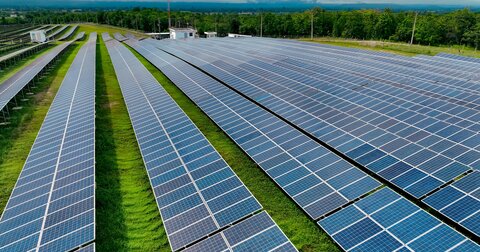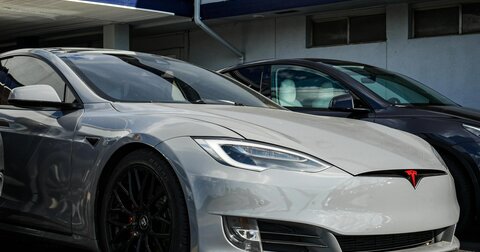Expert agrees with Billy Bob Thornton in ‘Landman’: Solar, windmill developments are environmentally harmful
‘Landman’ character points out ill effects of solar panel, wind turbine production
The new TV show “Landman" questions whether solar energy and wind turbines can replace the energy created by fossil fuels.
Billy Bob Thornton’s character, Tommy Norris, lectures a lawyer representing the oil company he works for on how green energy is not so green.
Thornton's character says about the current state of windmills, solar farms, and electronic vehicle batteries:
“Do you have any idea how much diesel they have to burn to mix that much concrete or make that steel and haul this (expletive) out here and put it together with a 450-foot crane? You want to guess how much oil it takes to lubricate that (deleted) thing or winterize it? And it’s 20-year lifespan. It won’t offset the carbon footprint of making it.
”And don’t get me started on solar panels and the lithium in your Tesla battery. And never mind the fact that if the whole world decided to go electric tomorrow, we don’t have the transmission lines to get the electricity to the cities.
He said it would take 30 years for society to go fully electric. Petroleum derivatives, he adds, are used in products such as car wheels, lipstick, antihistamines and artificial heart valves.
Thornton’s character made many good points, Jason Hayes, director of energy and environmental policy at the Mackinac Center for Public Policy, told Michigan Capitol Confidential in an email.
“The Landman video clip making its way around the internet gives a brief but very useful review of a few of the many fallacies propping up the continued use of wind and solar,” he wrote.
“Billy Bob Thornton’s accurate explanation of the massive amount of fossil-fueled energy required to manufacture, transport, build, and operate wind turbines leads things off,” he added.
Hayes agreed with the character’s assessment of fossil fuels. It will take decades to convert fully from fossil fuel energy to solar and wind, Hayes said.
Hayes disagrees, however, with the character’s conclusion that consumers will run out of oil before a suitable replacement is found. The Energy Information Administration “indicates that we have far more recoverable oil and natural gas reserves today than we did in the early 1980s,” he said. There are still 400 years of coal reserves in the ground and about 90 years’ worth of natural gas, Hayes told CapCon.
“By relying on fracking for the energy we need today and rapidly advancing innovative nuclear technologies, we can ensure our grandchildren’s grandchildren have a continued supply of abundant, affordable, and reliable energy.”
Michigan law requires the state to obtain 50% of its energy from renewable sources by 2030 and 60% from renewables by 2035.
State officials already have given hundreds of millions of dollars to alternative energy companies.
Electric vehicles require cobalt, 70% of it is mined using fossil fuels and slave labor in the Democratic Republic of Congo, according to previously published Mackinac Center work. Electronic vehicle batteries require lithium, which is obtained through mining operations that depend on fossil fuels.
Mining for natural resources EVs need can also destroy and contaminate the land.
Approximately 34 billion tons of carbon dioxide are emitted annually in the cobalt mining process, according to Earth.org.
Whitmer’s office did not respond to a request for comment.
Michigan Capitol Confidential is the news source produced by the Mackinac Center for Public Policy. Michigan Capitol Confidential reports with a free-market news perspective.


 Clean energy isn’t clean
Clean energy isn’t clean
 EGLE flap leaves 150,000 tons of waste headed for Michigan landfills
EGLE flap leaves 150,000 tons of waste headed for Michigan landfills
 State climate conference to tout clean energy plans that will raise electricity costs
State climate conference to tout clean energy plans that will raise electricity costs

 Michigan firefighters dumped 3,000 gallons of water on burning Tesla
Michigan firefighters dumped 3,000 gallons of water on burning Tesla
 Michigan State Police lease first EV at $1,062 per month
Michigan State Police lease first EV at $1,062 per month